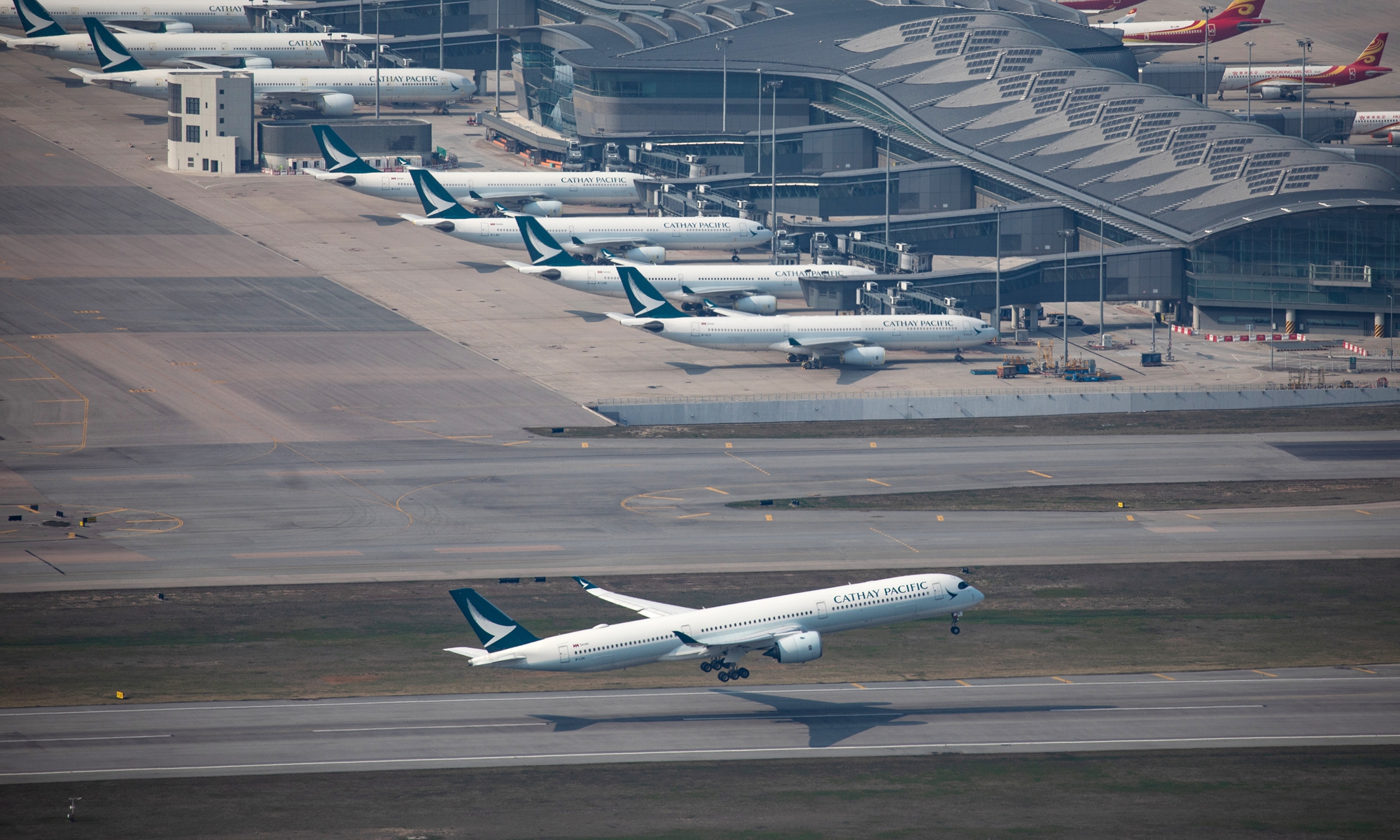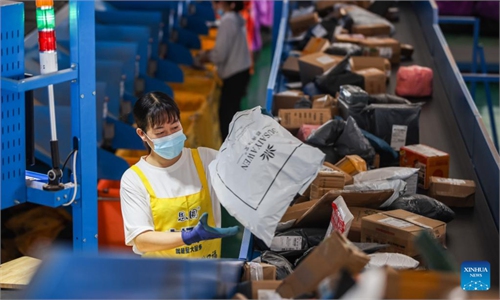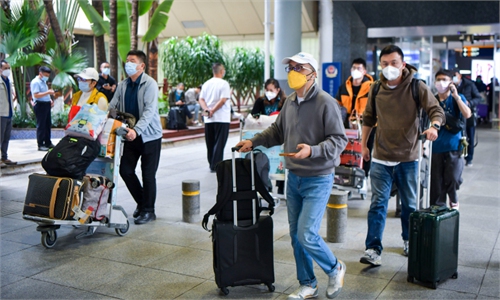
An aircraft operated by Cathay Pacific Airways takes off at the Hong Kong International Airport in Hong Kong, China, on March 9, 2021. Photo: VCG
The Hong Kong Special Administrative Region (HKSAR) government on Thursday said it will continue to request the Japanese authorities to rescind all discriminatory restrictions on passenger flights departing from Hong Kong, after Japan required passenger flights from the city to land at only four designated Japanese airports starting on Friday.
The announcement came after Japan said on Thursday that in addition to the four airports, passenger flights from Hong Kong will also be permitted to land at New Chitose Airport, Fukuoka Airport and Naha Airport, provided the flights do not carry passengers who have been to the Chinese mainland within seven days prior to the flight.
Analysts and workers in Japan's tourism industry expressed concerns over Japan's restrictions on visitors from the Chinese mainland and flight restrictions, since these discriminatory measures would affect people-to-people exchanges and harm Japan's tourism recovery, given that the decision was made during a busy travel season and before the Lunar New Year holiday.
Japan first announced the restrictions on Tuesday, saying it would also strengthen border controls on travelers from the Chinese mainland, including COVID-19 tests upon arrival, media reported.
On Wednesday, the HKSAR government wrote to the Japanese authorities and liaised with the Consulate-General of Japan in Hong Kong to express grave concern and firmly request the Japanese authorities to rescind the restrictions.
Though Japan on Thursday added some airports for flights from Hong Kong, the HKSAR government said in the Thursday statement that the relevant arrangements are only applicable to passenger flights from Hong Kong and Macao. It considers the restrictions "unreasonable" and has requested the Japanese authorities to withdraw them.
Cathay Pacific Airways, the main carrier of Hong Kong, said on Thursday that it would cut the number of flights to Japan by 20 percent of the planned level, down to 65 per week in January 2023. HK Express said that 41 flights have to be canceled in January 2023 because it would only be able to operate 60 planned flights per week.
Japan's flight restrictions sparked opposition from the tourism industry. The Okinawa Times reported on Thursday that five local tourist agencies jointly applied to the government and called for dropping the flight restriction. In October, flights between Hong Kong and Naha Airport resumed, and local people have pinned their hopes of boosting tourism with increasing overseas tourists.
The Japanese authorities' flight restriction is unreasonable and goes against the Japanese leader's previous remarks on expectations for China to further lift exit and entry measures. Japan's inconsistent move is not a positive signal to promote bilateral people-to-people exchanges or the stability of industrial chains, nor will it facilitate the economic recovery, Qian Feng, a professor at Tsinghua University who just returned from Japan, told the Global Times.
Qian said that as Japan is embracing a travel season when many tourists are coming from the HKSAR and countries in Southeast Asia, Japan's flight restrictions would hurt tourists' feelings and confidence in Japan.
Qian said that people from tourism-related industries welcomed Chinese tourists and hoped to see them return, so as to inject new energy into Japan's tourism sector.
Chinese tourists used to make up a significant portion of visitors to Japan, and without them, tourism there has only returned to 30-50 percent of pre-pandemic levels.
Many people in Japan have high expectations for Chinese visitors, but the Japanese government's move would affect China-Japan tourism, Kishida Makoto, head of the MK tourist agency in Osaka, told the Global Times.
Makoto said that Japan has just started receiving overseas visitors, and some tourist spots and malls may face personnel shortages. As related industries are getting ready and Chinese tourists are coming, the Japanese government may alter the restrictions.


